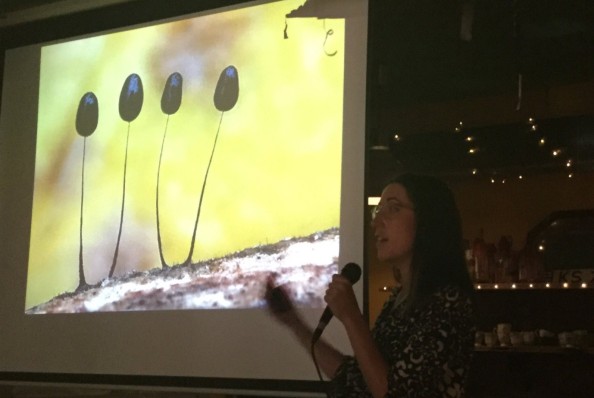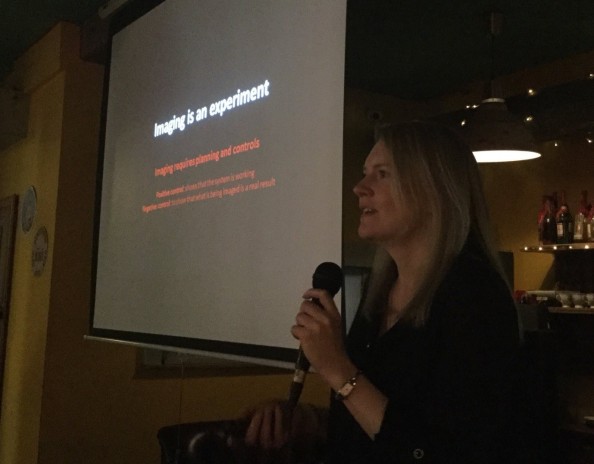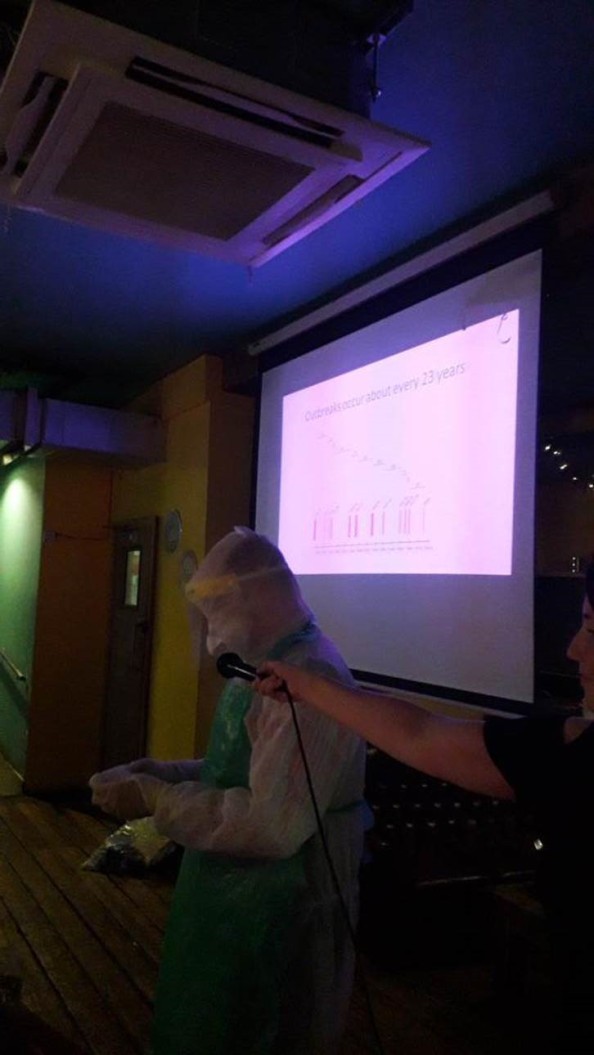Pint of Science is an international festival of science taking place over three days in bars and pubs across the world. In Liverpool, the event, coordinated by Faculty of Life Sciences public engagement officer Laura Winters, took place in three different pubs over three nights.
On Monday evening, Raphaël Lévy and Hannah Davies co-chaired “Deadly Viruses, Cheating Microbes, and Other Things Small!” in the Baltic Social featuring Siobhan O’Brien, Jen Adcott and Calum Semple with volunteer Emma Cartledge. Science is a collective enterprise that works thanks to people in different roles and that evening was a good reminder of that: Siobhan is a Tenure Track fellow in the Institute of Integrative (this means she is starting to establish herself as a group leader), Jen is a technician in the Centre for Cell imaging (i.e. she helps lots of other scientists with the microscopy needs) and Calum is a Professor of Child Health and Outbreak Medicine in the Institute for Translational Medicine.
Siobhan talked about the social life of microbes using examples from biology (e.g. black slime mould), sociology (the prisoners’ dilemma) and also from popular show the Golden Balls. She explained the mechanisms by which individuals in groups of people/microbes make decisions that affect the success/demise of the entire group. She concluded with some comments about the relevance of these considerations to the spread of bacterial infections.

Jen spoke next. She shared her enthusiasm for her toys: the multimillion pounds suit of microscopes in the Centre for Cell Imaging. She gave an introduction to light microscopy and the wide size range of objects they are looking at, from tiny bacteria to entire fruit flies. She explained her role as a technician. Microscopy is not just “getting a nice image”; microscopy is a scientific experiment that requires good understanding of the technique and of how to analyse the images. Jen is there to help other scientists getting access to these technologies and she shared some examples of recording the movement of cells with relevance to cancer biology.
After a break (including pints, looking at spider and some live aphids with a microscope, and feeling an awesome microscopy quiz prepared by Jen), we were not quite ready for Calum’s dramatic entrance in a full Ebola gear. He started by undressing (just the protective outfit) showing the extraordinary precautions necessary to prevent contamination. Even with such precautions, the epidemic took the life of a number of doctors and nurses. His talk was a moving tale weaving the gravity of his personal experience of working on the Ebola epidemics in West Africa (for which he and his team received the Queen’s Ebola Medal) with discussions of how outbreaks are described in Hollywood movies. It prompted a number of questions, including a final one about what is the best way to protect oneself and our family. In a country such as the UK where there is a functioning health system, his answer was unambiguous: keep calm and follow the instructions of the authorities. 
On Tuesday evening, Chris Deputy, marketing and communications officer at IIB hosted “An Evening of Abnormal Eating, Pretend Drinking and Smelling Wee” in Oh Me Oh My, just opposite the famous Liver Building. The evening saw academics from psychology discuss their work and its impact on health and medicine. Unfortunately, one of our headline speakers, Elinor Chapman of Translational Medicine, was unable to attend and so our audience will have to wait until next year before they can learn about the history of urine in health and disease.
During the evening, two members of IIB took part in a “shots of science” competition, where they described their research in three minutes to an audience who then voted for their favourite talk. Ewan Harney, Post-doc research associate in the Department of Evolution, Ecology and Behaviour (DEEB) spoke about his research into “jumping genes” in fruit flies, and what these genes can tell us about our DNA. Holly Coombes, also from DEEB, then shared her research into mammalian scents and what secrets they reveal about the animal kingdom, as well as the insights they offer into how humans respond to smells
Pint of Science is an annual science festival, taking place towards the end of May every year, so make sure you look out for our Pint of Science talks next year!



